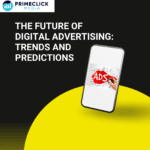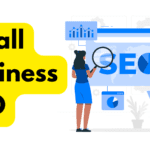Understanding PPC Advertising
What is PPC Advertising?
PPC (Pay-Per-Click) advertising is when you pay a fee each time someone clicks on your online ad. This lets you get visits to your website without waiting for organic search results. Ads show up on search engines, websites, and social media. Advertisers bid on keywords related to their customers, and when people search for those keywords, the ads show up. PPC is precise, easy to measure, and lets advertisers manage their spending well. It’s a fast way to bring traffic to your site and connect with potential customers right when they’re looking.
Key Components of a PPC Campaign
For a PPC (Pay-Per-Click) campaign to work well, you need a few important things. First, pick the right words people use to search. Your ads need catchy titles and descriptions. Decide how much you’ll pay each time someone clicks your ad. Add extra details like location or links to your ad. Make sure the page people see after clicking (landing page) is set up to make them do what you want, like buy something. Track how well your ads are doing and change them if needed. Manage your money carefully to get the most out of your PPC ads and do well.
Benefits of PPC Advertising for Beginners
Why Choose PPC Advertising?
Choose PPC (Pay-Per-Click) advertising because it makes sure your ads show up when people search for things like what you offer. You decide how much to spend, which helps control costs. PPC gives clear results—you can see how many clicks and sales your ads get. Unlike old-fashioned ads, PPC gets you seen fast and brings in customers quickly. You can change your ads right away to work better. Overall, PPC is a strong way to get the right people to see your business online and meet your marketing goals effectively.
Advantages Over Other Advertising Methods
PPC (Pay-Per-Click) ads are awesome because they put your ad in front of people who want what you offer. You get noticed fast and see results quickly. You choose how much to spend and can change it whenever you want. You can check how well your ads are doing and make them better. PPC adjusts quickly to what people want and how the market changes. Overall, PPC is cheaper, focuses on what customers are searching for, and gives you results you can see right away. That’s why it’s better than other kinds of advertising.
Setting Goals for Your PPC Campaign
Defining Your Objectives
Defining your objectives means setting clear goals you want to achieve. Whether it’s selling more, getting more leads, or making your brand more well-known, your goals should be clear, easy to measure, possible to reach, important for your business, and have a deadline (SMART).This helps you spend your time and money wisely. Clear goals let you plan how to reach them with your strategies and campaigns. This ensures your plans fit what you want to do in your business and help you succeed.
Examples of Effective PPC Goals
Good PPC goals are getting more people to visit your website, selling more products or getting more leads, making more people know your brand, and promoting specific things you offer. You should measure each goal, like counting how many clicks, sales, or times your ad shows up, over a set time, to match your business goals.
Keyword Research Strategies for PPC
Importance of Keyword Research
Keyword research is really important because it tells you the exact words people use to search for things like what you sell online. When you find the right keywords, you can make your website and ads better so that more people who want what you offer can find you. This helps you connect with customers who are actively searching for your products. Good keyword research also helps you understand what’s popular, plan your marketing better, and bring more visitors to your website who want to buy from you.
Tools and Techniques for Keyword Research
To find good keywords, tools like Google Keyword Planner, SEMrush, and Ahrefs are useful. They tell you how popular a keyword is, how tough it is to rank for it, and suggest similar words. You can brainstorm ideas, see what your competitors use, and use autocomplete suggestions from search engines. Specific phrases called long-tail keywords are excellent for niche markets. Keep updating and improving your list based on what works best to ensure your website and ads keep getting noticed by the right people and appear higher in search results.
Creating Compelling Ad Copies
Writing Effective Ad Copies
To create effective ads, write clear and attention-grabbing messages that explain your offer well and persuade people to take action. Use strong language, highlight benefits, and include a clear call-to-action (like “Buy Now” or “Learn More”). Ensure your ad meets customers’ needs and stands out. Testing different versions helps you figure out what works best. Good ad copies are straightforward, persuasive, and make people interested in what you’re selling.
Best Practices for Ad Copywriting
- Be Clear and Direct: Make sure your message is easy to understand.
- Highlight Benefits: Show what people will gain from your product or service.
- Strong Call-to-Action: Use words that encourage action, like “Buy Now” or “Learn More.”
- Match Customer Needs: Your ad should address what customers want.
- Stand Out: Make your ad different from others.
- Test Different Versions: See which ads work best.
- Keep It Simple: Avoid using complicated language.





